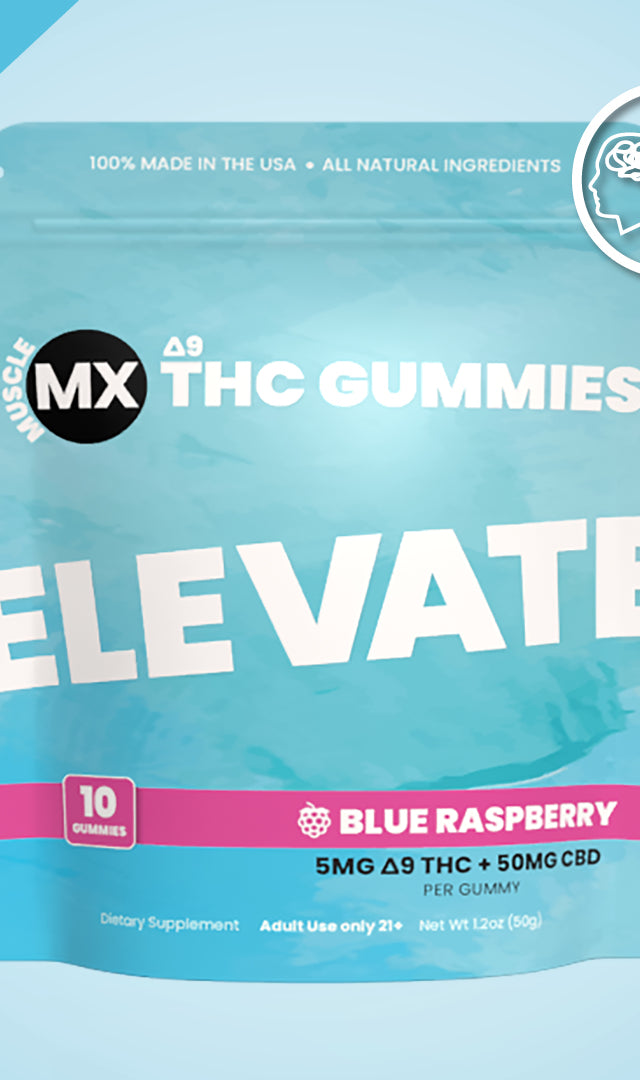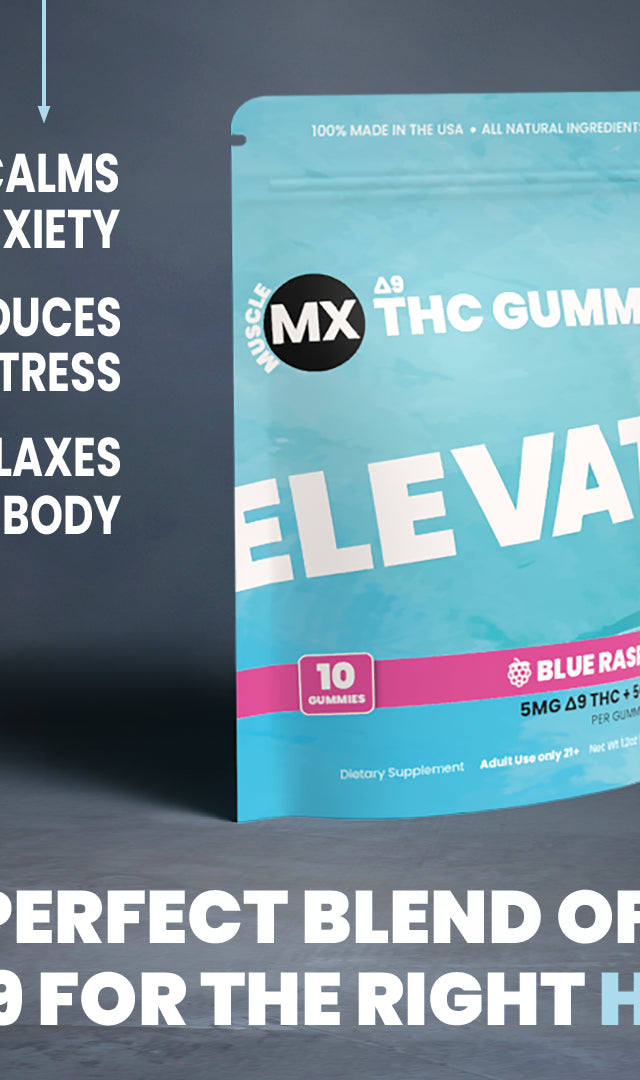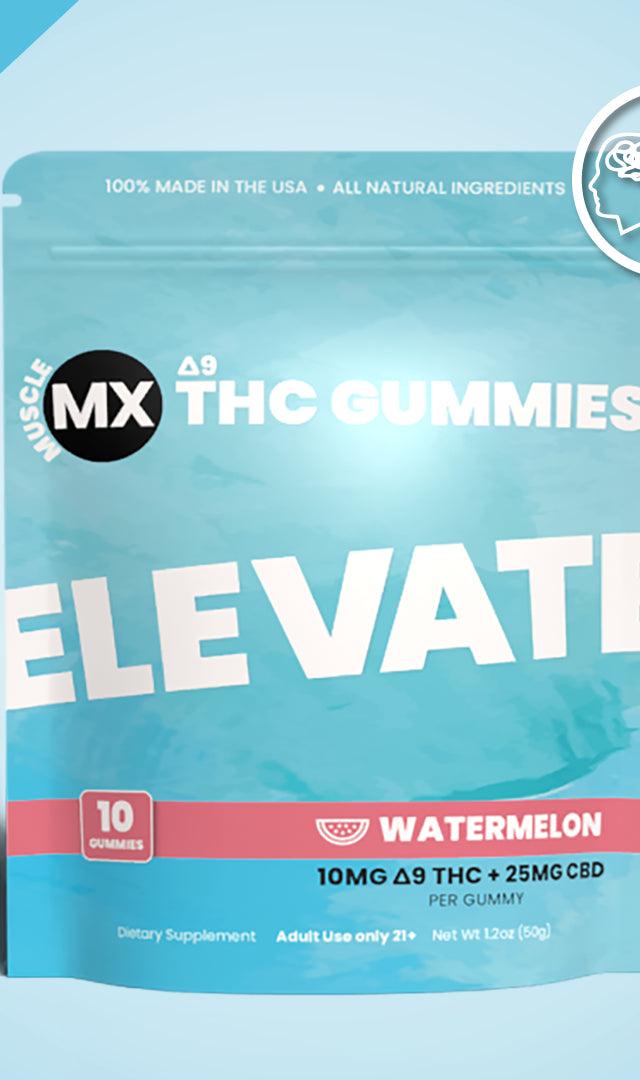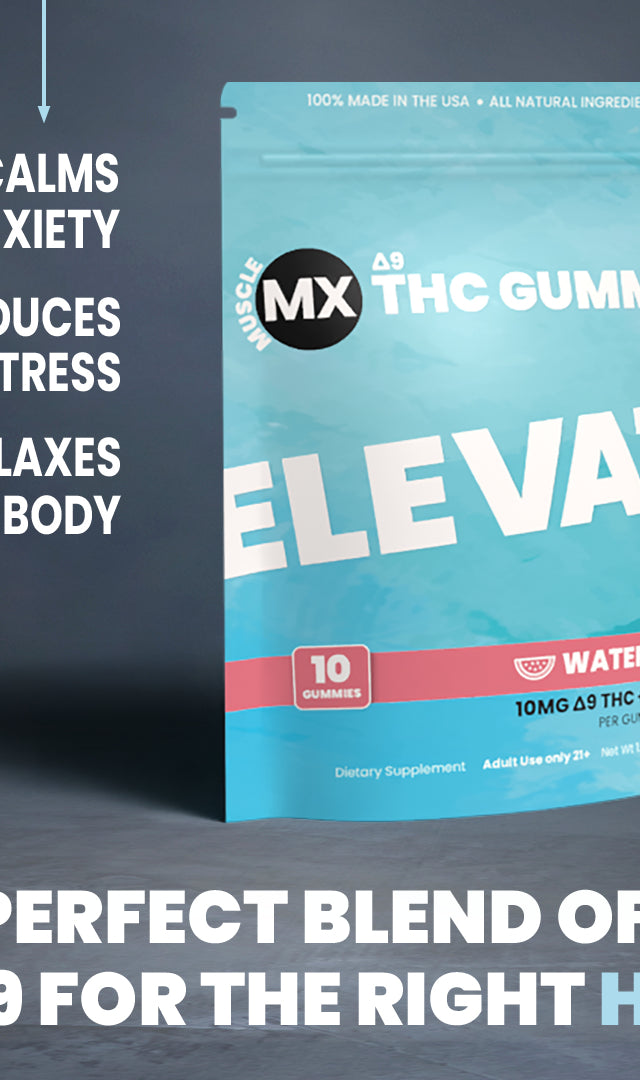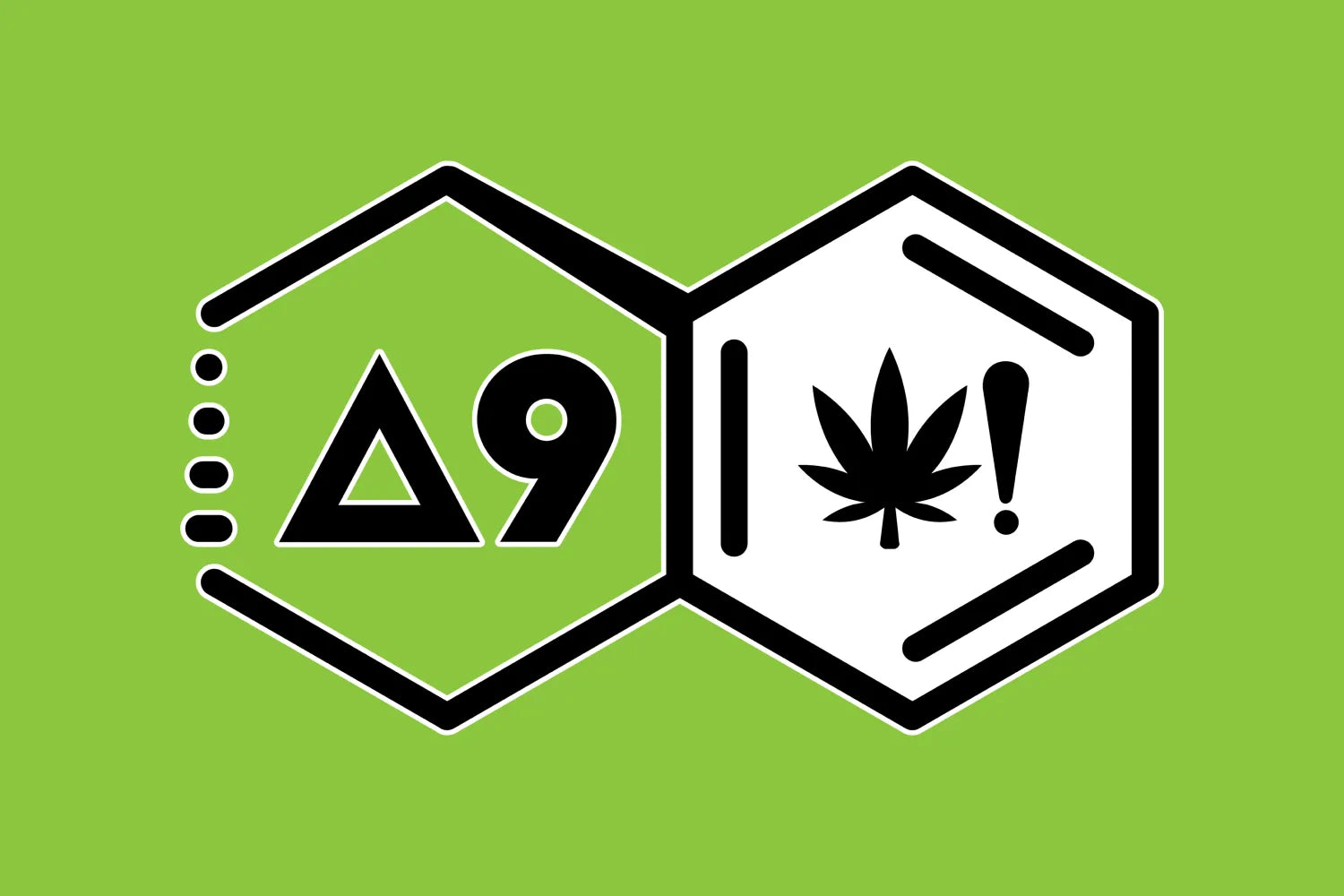THC gummies have emerged as the go-to option for many seeking pain relief. A remarkable 49% of consumers now reach for gummies instead of smoking cannabis (47%) — a shift that's changing how people approach discomfort management. This trend is particularly notable among older Americans, with those aged 50+ trying cannabis increasing from 12.8 million to 16 million between 2021 and 2022.
Why are so many people turning to THC edibles for pain? The answer might lie in their effectiveness. Studies show that 10 milligrams of THC can deliver pain relief comparable to a 60-milligram dose of codeine — an important finding when you consider that nearly 50 million Americans struggle with chronic pain. But this growing popularity isn't without concerns. Emergency room visits related to cannabis use among adults 65 and older have skyrocketed by 1,808% from 2005 to 2019 in California alone.
Understanding both the potential benefits and risks of THC gummies is essential before incorporating them into your pain management routine. In this guide, we'll explore why people are choosing these products, how they actually work in your body, the benefits and risks to consider, and important safety guidelines recommended by medical professionals. Whether you're looking for alternatives to traditional pain medications or already using THC products, knowing the facts can help you make better decisions about managing your discomfort.
Why People Are Turning to THC Gummies for Pain Relief
THC gummies are gaining tremendous popularity as a pain management option across different age groups. This shift represents a notable change in how people are approaching their health concerns and discomfort.
The rise of edibles over smoking
The numbers tell a clear story: edibles have now surpassed smokable cannabis in popularity—49% compared to 47%. Why are so many people making this switch? For many users, edibles offer a healthier alternative by eliminating the respiratory risks that come with inhaling smoke. Without combustion, there's simply no exposure to potentially harmful toxins.
Gummies also provide unmatched discretion. Unlike smoking, a gummy doesn't create noticeable odors or visible smoke, making them suitable for more situations. As one cannabis consultant put it, "Infused edibles, including gummies, are generally more discreet to consume".
Why gummies are preferred by older adults
Older adults have become one of the fastest-growing groups embracing THC gummies. The statistics are eye-opening—21% of people over 50 used some form of cannabis in the past year, up from just 12% in 2021. Among seniors specifically, cannabis use has jumped dramatically from a mere 0.4% in 2007 to 8% by 2022.
What's behind this significant increase? Many seniors turn to THC gummies after experiencing unwanted side effects from traditional prescription medications. For example, one Florida woman reported that after trying various sleep medications for her husband where "nothing really worked," a cannabis gummy finally provided the relief he needed.
The precise dosing available in commercially produced gummies also appeals to older adults who value consistency in their experiences. This trend hasn't gone unnoticed by companies, with some now creating product lines specifically focused on seniors.
Common conditions people use THC for
People are turning to THC gummies for a variety of health concerns, but some patterns stand out. Pain relief is a primary motivation—63% of older cannabis users mention this reason. Research shows cannabis reduced pain by 40% in clinical trials involving neuropathic pain, spinal cord injury, and multiple sclerosis.
Sleep problems represent another major reason, with 68% of older users seeking better rest. Mental health concerns follow closely behind, as 53% report using cannabis to address mood issues.
Specific conditions drawing people to THC gummies include:
- Arthritis (the top reason cited by Colorado seniors)
- Anxiety
- Nausea
- Appetite stimulation
For those with chronic conditions, the extended duration of effects—lasting 6-8 hours compared to just 2-4 hours with smoking—offers significant appeal for ongoing relief throughout the day or night.
How THC Gummies Work in the Body
The way THC gummies travel through your body explains why their effects differ so much from smoking cannabis. Understanding this journey helps explain both their delayed onset and longer-lasting relief.
What Happens During Digestion
When you consume a THC gummy, it doesn't take effect right away like smoking does. Instead, the gummy must first dissolve in your stomach before moving to your intestines where THC absorption begins.
The magic happens when THC reaches your liver. Here, it undergoes what's called "first-pass metabolism" — your liver enzymes convert delta-9 THC into 11-hydroxy-THC. This transformation is crucial because 11-hydroxy-THC is potentially three times more potent than regular THC. This explains why edibles often produce stronger effects than smoking the same amount.
This digestive process creates that delayed onset that surprises many first-time users. While smoking delivers effects within seconds, THC gummies typically take between 30-90 minutes to begin working. For some people, effects might not appear for up to 2 hours.
How Long Do Effects Last?
One of the biggest advantages of THC gummies for pain relief is their extended duration. After smoking cannabis, effects typically last only 1-3 hours. In contrast, a single dose of edibles commonly provides relief for 6-8 hours, with some users experiencing effects for up to 12 hours.
This extended relief happens because 11-hydroxy-THC interacts differently with your endocannabinoid system, plus THC gradually releases from fat tissues back into your bloodstream over time.
Why Timing Your Dose Matters
Timing makes all the difference when using THC gummies for pain management. Because of the delayed onset, many people mistakenly take additional doses too soon, leading to overconsumption when both doses finally kick in.
For effective chronic pain management, think about when your symptoms typically intensify. Taking gummies 1-2 hours before pain usually escalates allows the effects to align with your needs. The extended duration means a single dose might provide all-day relief — particularly valuable for persistent pain conditions.
Understanding these timing dynamics explains why doctors consistently recommend the "start low and go slow" approach with THC gummies. This principle helps ensure you get the relief you need without unwanted side effects.
Benefits and Risks of Using THC Gummies
When considering THC gummies for pain relief, understanding both the potential benefits and risks is crucial for making informed decisions about your health.
Potential Benefits for Chronic Pain and Sleep
Research points to THC's effectiveness for pain management. Studies indicate that just 10 milligrams of THC can provide pain relief equivalent to a 60-milligram dose of codeine. For people suffering from chronic pain, this presents a meaningful alternative to traditional medications.
THC gummies also show promise for sleep issues. Combinations of high-dose CBD with low-dose THC may help improve sleep quality. Many users report that cannabis helps restore their natural sleep patterns — particularly valuable for those whose pain disrupts their rest.
Some conditions respond especially well to THC. Research shows cannabis works effectively for neuropathic pain and pain associated with multiple sclerosis. Patients with HIV-associated wasting syndrome have also experienced improved appetite after using cannabinoid products.
Common Side Effects of THC Gummies
While beneficial for many, THC gummies commonly cause several side effects:
- Drowsiness and fatigue
- Dry mouth and dry eyes
- Increased heart rate
- Heightened appetite
- Dizziness and disorientation
Some users may experience anxiety or temporary impairment of memory, attention, and coordination. Remember to avoid driving or operating machinery when using these products.
Risks of Overconsumption and Delayed Effects
The delayed onset of THC gummies creates a unique risk. Effects typically take 30-90 minutes to begin but may need up to 4 hours to reach full potency. This delay often leads to overconsumption when users take additional doses because they don't feel immediate effects.
Overconsumption can result in extreme sedation, anxiety, paranoia, hallucinations, rapid heartbeat, or respiratory depression. Emergency room visits for cannabis-related problems among older adults increased by a startling 1,808% from 2005-2019 in California.
Interactions with Other Medications
THC interacts with nearly 400 prescription medications, creating potentially dangerous combinations. THC is metabolized by CYP3A4 and CYP2C9 liver enzymes, meaning medications that inhibit these enzymes can significantly increase THC concentration in your bloodstream.
Particularly concerning interactions include blood thinners (with reports of very high INR levels and bleeding with warfarin), CNS depressants like alcohol and opioids (increasing drowsiness and impairment), and certain psychiatric medications. Always talk to your healthcare provider about potential interactions before combining THC with prescription medications.
Doctor-Recommended Tips for Safe Use
Safety should be your top priority when using THC gummies for pain relief. Medical professionals have clear guidelines that can help you minimize risks while getting the most benefit from these products.
Start Low and Go Slow
Doctors consistently emphasize beginning with minimal doses of THC. Start with just 2.5mg of THC or less when first trying gummies for pain management. This cautious approach helps you avoid unpleasant effects like extreme sedation, anxiety, or hallucinations.
Patience is crucial after taking your initial dose — resist the urge to take more if you don't feel immediate effects. THC gummies typically take 30 minutes to 2 hours to begin working, with peak effects occurring around 4 hours after consumption. Wait at least two hours before considering an additional dose.
Track Your Dosage and Effects
Keeping a personal log of your experiences can provide valuable insights for optimizing pain relief. Document the specific amount consumed, when effects begin, how intense they feel, and how long they last. This record helps you identify your ideal dose based on your unique body chemistry.
Your body weight, metabolism, and previous cannabis exposure significantly influence how you'll respond to THC gummies. Lighter individuals often need less THC for the same effects, while those with faster metabolisms may process the compound more quickly.
Choose Regulated Dispensary Products
For your safety, always select THC gummies from licensed dispensaries or approved medical cannabis programs. Regulated products undergo mandatory testing for potency, pesticides, mold, bacteria, and heavy metals. Unregulated products may contain harmful contaminants or inaccurate THC levels.
Look for a certificate of analysis from third-party testing to confirm product quality and accurate THC content. This verification is essential since labels on unregulated products often misrepresent actual cannabinoid concentrations.
When to Avoid THC Edibles
Several conditions warrant avoiding THC gummies entirely:
- If you have bipolar disorder or schizophrenia, as THC may worsen manic symptoms or increase psychosis risk
- Within two weeks before planned surgery due to potential interactions with anesthesia
- When taking medications that might interact with THC, including blood thinners, CNS depressants, and many psychiatric medications
- Before driving or operating machinery, as THC impairs attention, judgment, and coordination
How to Talk to Your Doctor About THC
Open communication with healthcare providers about THC use is essential despite lingering stigma. Remember that 44% of regular cannabis users never discuss it with their doctors. This silence creates significant risks since THC interacts with numerous prescription medications.
Present your interest in THC gummies for pain management factually, describing your specific symptoms and previous treatments. Legalization makes honest conversations easier and ultimately leads to better care coordination.
The Bottom Line
THC gummies have clearly become a major player in pain management options. We've seen how these edibles have surpassed smoking in popularity, especially among older adults looking for alternatives to traditional medications. But choosing THC for pain relief isn't a decision to take lightly — it requires careful consideration of both the potential benefits and risks.
For those dealing with chronic pain, the extended duration of relief is particularly appealing. While smoking cannabis typically provides effects for just 2-4 hours, THC gummies can offer relief for up to 12 hours. The research suggesting that 10mg of THC can provide relief comparable to 60mg of codeine certainly makes a strong case for their effectiveness. However, the delayed onset of effects creates real dangers, as we can see from the alarming increase in emergency room visits among older cannabis users.
Medical professionals consistently emphasize safety first when it comes to THC gummies. The "start low and go slow" approach is essential, especially considering how differently THC metabolizes when eaten versus smoked. Choosing regulated products and having honest conversations with your healthcare providers helps reduce potential risks while maximizing the benefits.
Remember, THC gummies are just one tool in your pain management toolkit. While they show promise for certain conditions, they deserve the same careful consideration you'd give to any medication. Before trying cannabis edibles, talk with your doctor about possible interactions with your current medications and develop a plan that acknowledges both the benefits and limitations of these increasingly popular products.
Your wellness journey is uniquely yours, and finding the right approach to pain management might involve several strategies. Understanding the facts about THC gummies helps you make informed decisions that best support your health and comfort.
FAQs
Q1. What is the recommended THC dosage for pain relief? Start with a low dose of 2.5mg THC or less. Studies suggest that 10mg of THC can provide pain relief comparable to 60mg of codeine. However, individual responses vary, so it's important to start low and gradually increase if needed.
Q2. How do THC gummies work for chronic pain management? THC gummies work by interacting with the body's endocannabinoid system. When digested, THC is converted to a more potent form in the liver, potentially providing longer-lasting pain relief compared to smoking. Effects can last 6-8 hours, making them suitable for managing persistent pain.
Q3. Are there any risks associated with using THC gummies for pain? Yes, there are risks to consider. Common side effects include drowsiness, dry mouth, and increased heart rate. There's also a risk of overconsumption due to delayed onset of effects. THC can interact with certain medications, and it may worsen some mental health conditions.
Q4. How long does it take for THC gummies to work? THC gummies typically take 30-90 minutes to begin working, with some people experiencing effects up to 2 hours after consumption. Peak effects usually occur around 4 hours after ingestion. This delayed onset is important to consider to avoid accidental overconsumption.
Q5. Should I consult a doctor before using THC gummies for pain relief? Absolutely. It's crucial to discuss THC use with your healthcare provider, especially if you're taking other medications or have pre-existing health conditions. Your doctor can help assess potential risks, interactions, and determine if THC gummies are appropriate for your specific pain management needs.
References
https://www.aarp.org/health/drugs-supplements/weed-gummies-risks-benefits/
https://www.aarp.org/health/drugs-supplements/cannabis-use-in-older-adults/
https://www.nytimes.com/2023/11/16/well/mind/medical-marijuana-seniors.html
https://www.mayoclinic.org/drugs-supplements-marijuana/art-20364974
https://www.aarp.org/health/drugs-supplements/cannabis-for-medical-conditions/
https://www.consumerreports.org/health/cannabis/the-truth-about-treating-health-problems-with-cannabis-a1065165216/










































